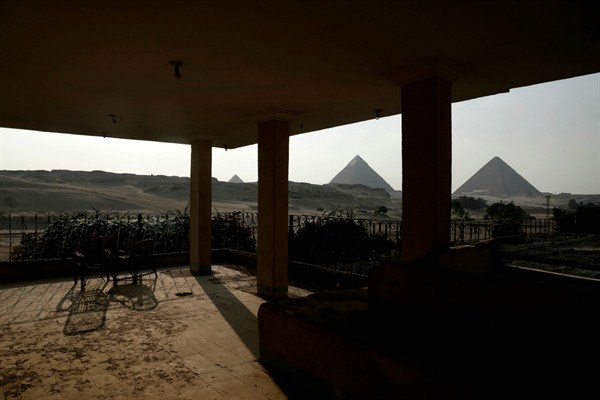Last week, the International Monetary Fund agreed to a tentative deal with Egypt to loan it $12 billion over three years, in exchange for undertaking major economic reforms. The Arab world’s most populous country, Egypt has been cash-strapped and staggering from crisis to crisis in the five years since longtime President Hosni Mubarak was toppled in a popular uprising. President Abdel-Fattah el-Sisi, who ousted Mohammed Morsi in a coup in the summer of 2013, came to power with the promise of righting the economy, but that hasn’t happened.
Instead, el-Sisi has taken after his predecessors and pursued grandiose development projects, like a costly and unnecessary expansion of the Suez Canal and misplaced plans for a new administrative capital in the desert far outside Cairo, designed to appeal to national pride as much as anything else. Ongoing political turmoil has kept Egypt’s vital but sunken tourism industry down. Billions in aid from the Gulf have dried up.
“It’s been a year since we have received any money” from Saudi Arabia, the United Arab Emirates, and other oil-rich Gulf states, the head of Egypt’s Central Bank, Tarek Amer, told a news conference in Cairo last week. They were once el-Sisi’s most enthusiastic supporters and bankrollers.

